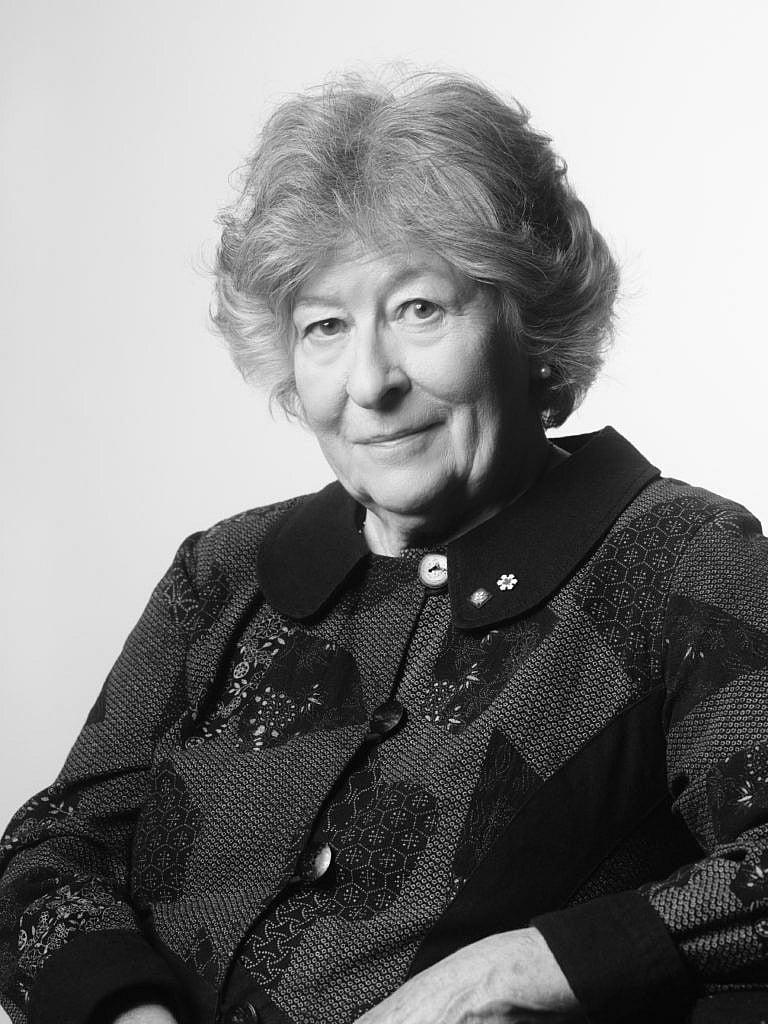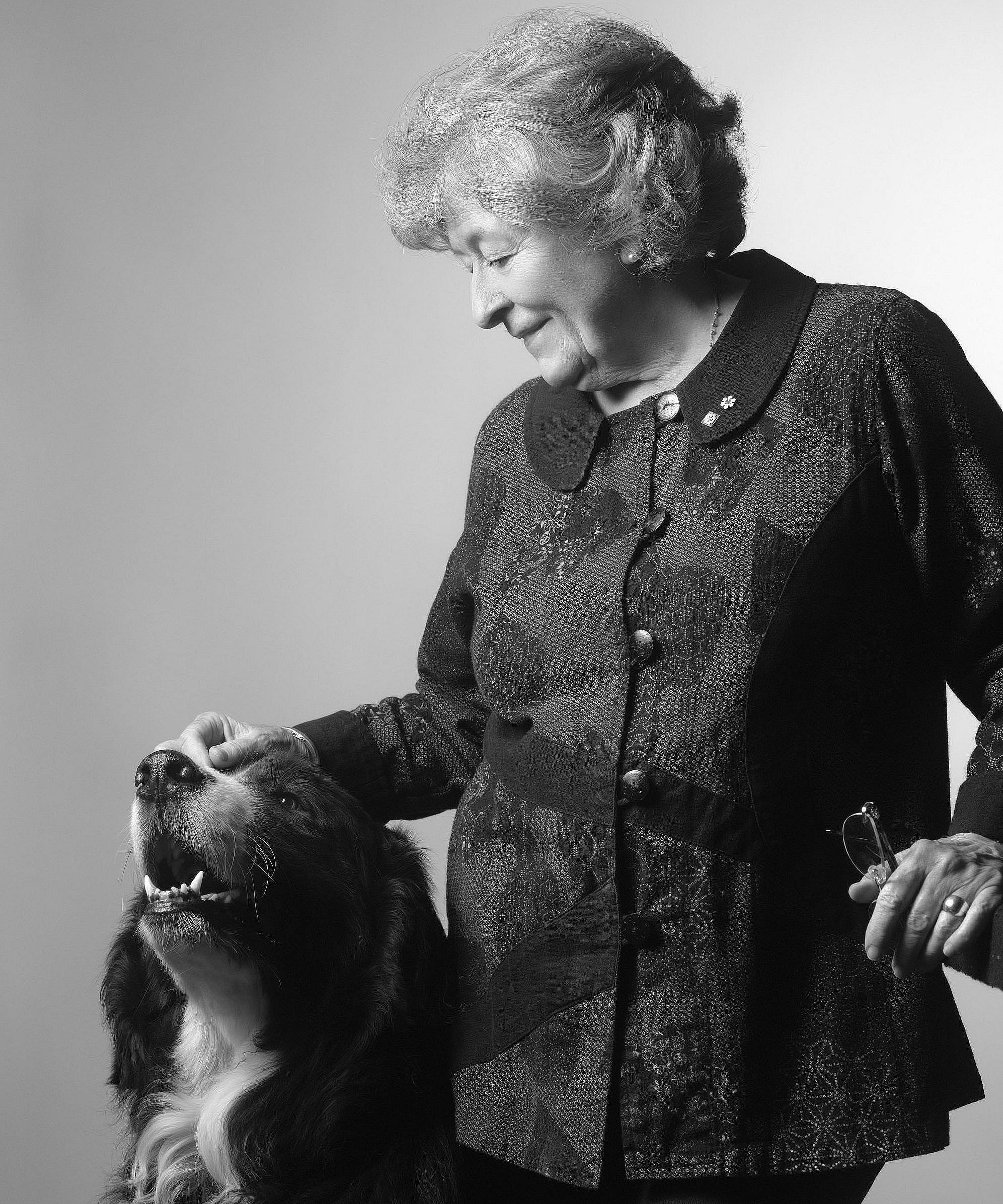Louise Arbour is fighting to reform Canada’s military
Arbour has been a Supreme Court justice and the United Nations high commissioner for human rights. Now, she’s staring down her most formidable challenge yet.

(Photography by Richmond Lam)
Share
Louise Arbour, a former Supreme Court justice and United Nations high commissioner for human rights, has spent her career taking on the world’s most notorious human rights violators. And yet one of her most formidable challenges is domestic. In May, Arbour released the results of her year-long inquiry into the Canadian Armed Forces, sparked by a string of sexual misconduct allegations—some involving the organization’s top brass. The report was unequivocally damning: the military’s culture is deficient; its colleges outdated. “I was told that almost every female cadet has experienced an incident or more of sexual misconduct ‘or worse,’ ” she wrote. Now, the federal government is tasked with implementing Arbour’s 48 recommendations, which include handing over sexual misconduct cases to civilian courts. Progress is slow, and Arbour is patient—to a point.
Yours is the second inquiry into the military’s handling of sexual misconduct cases in seven years. How is this report different?
Justice Marie Deschamps’s report was pretty earth-shattering in exposing how ingrained sexual misconduct was in military culture. But looking at the remediation that would come from a criminal justice response was outside of her mandate. When I came along, there was a lot of concern that change had not been implemented, even coming from the auditor general. My report looks at two issues: the continued prevalence of sexual misconduct, and allegations against very senior members of the Armed Forces. I was trying to see how people with these character flaws manage to progress through the ranks.
Your most talked-about recommendation is that the military hand over sexual misconduct complaints to civilian courts, where conviction rates in these cases are famously low. What reasonable expectation of justice can victims have even if that change is made?
I’m not suggesting for a minute that the civilian system is perfect, but the military system has features that are even more problematic. The main one is the duty to report. It’s hard enough for any victim of criminal sexual assault to come forward, but to have to tell your chain of command in an environment where nothing will happen, aside from a slap on the wrist? There are also informal reprisals, like being ostracized by colleagues. A lot of corrective measures have been put in place over the years in the civilian system, including establishing specialized courts for sexual offences and attempts to displace myths and stereotypes. In the civilian arena, people report crimes because the system will react positively. In the military, the opposite happens.

You said that one impediment to progress is the assumption that misogyny is the root cause for the problems in the military. But isn’t misogyny the key issue?
Oh, there’s no question. Women always served in military support positions, like nursing, but they were only fully integrated into combat when the courts ordered it. It’s not enough to think that, over time, this culture will start to dissipate. The military has to accept that it can’t fix everything by itself. It has uniformity in its DNA. So if they keep thinking they can change things with PowerPoints and internal anti-misconduct initiatives, it’s not going to happen.
How do you rehabilitate an organization whose members inflict and enable abuses within its own ranks? It’s a snake eating its own tail.
The military could use external partners like the Canadian Human Rights Commission. It could also bring in experts from the civil corporate sector or send cadets to civilian universities, where diversity is years ahead of what we’ll ever see in military colleges. If you just recruit white boys who like guns but don’t like women or anybody who doesn’t look like them, you’ll perpetuate that culture.
You’ve spent a lot of time on conflicts that the international community initially showed little urgency in dealing with, like Darfur and Rwanda. How do you deal with human rights abuses being met with politicking and platitudes?
When I indicted Slobodan Milošević for war crimes, I thought, This is the beginning of a new era. When I was the high commissioner for human rights, there was a lot of momentum, too. But I started to understand that “momentum” was a Western-driven concept, and a tone-deaf one. The Western position—that our values were good—fell apart when we were asked to do something that was hard for us, like deal with the rights of migrants. I realized that what I thought would be constant, linear progress on these great ideas was, in fact, cyclical. I think we’re in a low part of the cycle now.
You said the Canadian military favours the appearance of implementation over substance. You could argue the federal government has similar limitations.
That’s true. I don’t think there’s anything in my report that is ideologically unacceptable to the government, but it’s not a priority. There’s no price to pay for not doing anything—until seven years later, when you appoint another judge.
Well, the price for inaction isn’t being paid by the military or the government. It’s being paid by the victims.
Exactly, and they’ve been very courageous to come forward. But until there’s widespread public and political mobilization, it’s hard to expect quick implementation. I always hated the expression “being the voice of the victims.” They have voices; what they need is a megaphone.
Mary Fisk, one of your former principal advisors, said that people in your inner circle were occasionally frustrated that you weren’t more outspoken about certain issues.
Mary’s a good friend; I’m sure she was struggling to say something negative. (I’m kidding.) Others were frustrated because I’m very results-oriented. The naming-and-shaming culture that’s very prevalent in NGOs—that’s their weapon. I don’t know if that’s how I can be most efficient. I could look good by banging my fist on the table, but what’s that going to achieve?
I just don’t think that any person with a heart can look at the kinds of horrors that go on and not want to be more forceful to make things better.
I am sure, because of that, they’d want to be very strategic and think: well, okay, after I bang my fist, how can I outsmart these people? How can I make them do something I know they don’t want to do?
I’m sure polite diplomacy can only go so far with despots. Eventually, you have to show your teeth.
It depends on what tools you have. I didn’t always have the capacity to do something concrete. Issuing an indictment is a nice way to do it, especially after you’ve been dismissed as just “this little woman.” You wait and wait, and when you’re ready: boom.
What makes you immune to the paralysis that can come from witnessing so much tragedy?
Well, what’s the alternative? Give up altogether. I’m going to Africa now because I’m on the board of the Mastercard Foundation. On the way back, I stop in Geneva, where I’m a member of the Global Commission on Drug Policy. I don’t weep at the fate of the world when I’m packing my bags. I’m often moved, but I’m always looking for fixes. I think, with any luck, the phone won’t ring, and I’ll just sit on my dock with my 110-pound dog, Snoro. Then something else comes up, and there I go again.
This article appears in print in the August 2022 issue of Maclean’s magazine. Subscribe to the monthly print magazine here, or buy the issue online here.